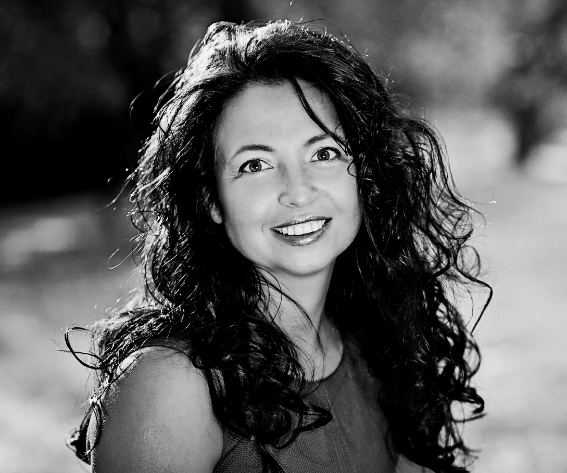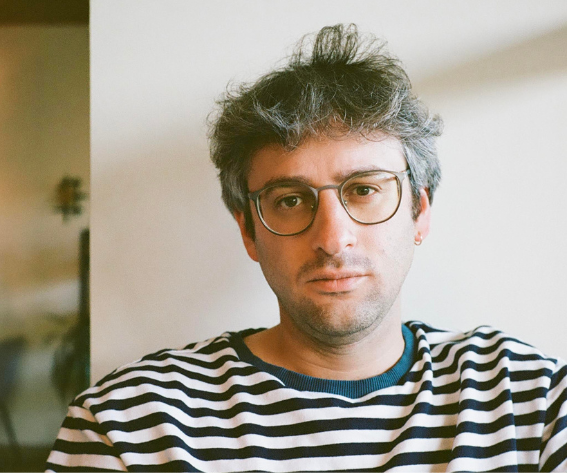May brought a host of evocative films to TMFF, but none struck a chord quite like ‘Freckles‘, a quiet storm of a story that lingers long after the credits roll. Winner of Film of the Month, along with honors for Director, Screenwriter, and Actress of the Month, ‘Freckles’ captivated us with its emotional restraint and unsettling grace. Set on the fringes of a rural village, the film follows the aging Zaka, infamous for her near-poisonous herbal brews offered to women fleeing violent homes. When a young mother and her son appear at her doorstep, what unfolds is not just a tale of survival, but of intergenerational pain, resistance, and unexpected tenderness. We spoke with Nevena Nikolova, the filmmaker behind ‘Freckles’ about adapting the story, working with young talent, and crafting a film where silence speaks louder than words.
TMFF: How long did it take for Freckles to come to fruition?
NN: I read Zdravka Evtimova’s short story “December, a Weird Month” in the spring of 2024, and I immediately knew I wanted to adapt it into a short film. It took approximately a year to write the script, cast the right actors, find the perfect location, secure financing, and finally, to make the film.
TMFF: What inspired the opening shot?
NN: The cat is a mystical and mythical creature, often carrying a contradictory image. In some cultures, it is worshipped and associated with gods; in others, it is demonized as a symbol of evil. Our story intentionally blurs the lines between good and bad, and the cat turned out to be the perfect opening symbol. A cat sitting still by a window feels both idyllic and tense—common yet extraordinary. It sets the tone for the film, luring the viewer into the story’s world in a slightly hypnotic way.
TMFF: Silence is utilized to maximize scenes and interactions, especially early on. What was the intention behind that?
NN: In Bulgaria, we have a saying: “Violence loves silence.” In fact, violence flourishes in silence. You can’t explore the phenomenon of domestic violence without understanding the role silence plays. In Freckles, we explore silence in all its dimensions: as a shield, a scar, a weapon—but also as a bridge. Breaking the silence is the first act of resistance, the first step toward healing. We used silence in the film to create a deliberate context, where every word counts.
TMFF: What do you hope people take away from ‘Freckles’?
NN: Freckles is a freefall into the darker corners of human nature. It explores cruelty—its roots, its forms, its reproduction, and how it might be tamed. Influenced by a kind of libertine relativism, my aim was to create a darkly poetic tale about the alchemy of survival. I hope we’ve engaged the viewer in a raw, unsettling, in-your-face journey where, despite multiple transgressions, death remains something that is still “not for kids.” We’re living in a world increasingly shaped by the destructive impulses of powerful individuals and groups—new victims are constantly being created, many of whom eventually become monsters themselves. So the question is: How do we break this vicious cycle of violence? One famous Bulgarian stage director, Krikor Azaryan, once said something really profound: “Can you imagine how the world would change if we could feel the pain we cause to others?” And if this take-away feels too utopian, Freckles offers yet another one that we hope could resonate with many. The most powerful weapon against violence is not poison—but love. And love can save the world from darkness. One child at a time.
TMFF: How challenging was it working with such a young actor?
NN: They say the first rule of filmmaking is “never work with children or animals.” Well, Freckles broke both rules—and yes, it was definitely a challenge.
I was concerned that if the child actor memorized his lines, he would sound phony when pronouncing those. So instead, I gave him cues and explained the meaning behind each line, allowing him to express it in his own words. Another challenge was how to convey the terrifying context of the story to young Boris (Litov). But I soon realized I didn’t have to. Simply by listening and observing the other actors, he intuitively grasped the mood and found his own, very organic way into the role. Although Boris had some experience in stage performances and commercials, Freckles was his screen debut. The repeated takes were frustrating for him at times, but his mother Kamelia—an actress herself—was incredibly helpful on set. One moment I’ll never forget was during a heated debate among the cast and crew. We suddenly noticed Boris had fallen asleep on the table in the middle of a shooting day. It was so innocent and sweet that we all melted—and immediately rearranged the shot list.
TMFF: What would you have done differently?
NN: In an ideal world, we would have had four full shooting days. But due to limited resources and scheduling conflicts, we had to compress everything into two extremely intensive days. It was insane—but we pulled it off.
TMFF: Could ‘Freckles’ evolve into a feature film?
NN: I don’t think so. It’s a genuinely short story, and its impact comes from its sharpness and intensity. I feel that would be lost in a longer format.
TMFF: What’s next for you?
NN: I’m currently developing the script for my debut feature film, ‘To the Skin’.









Leave a reply